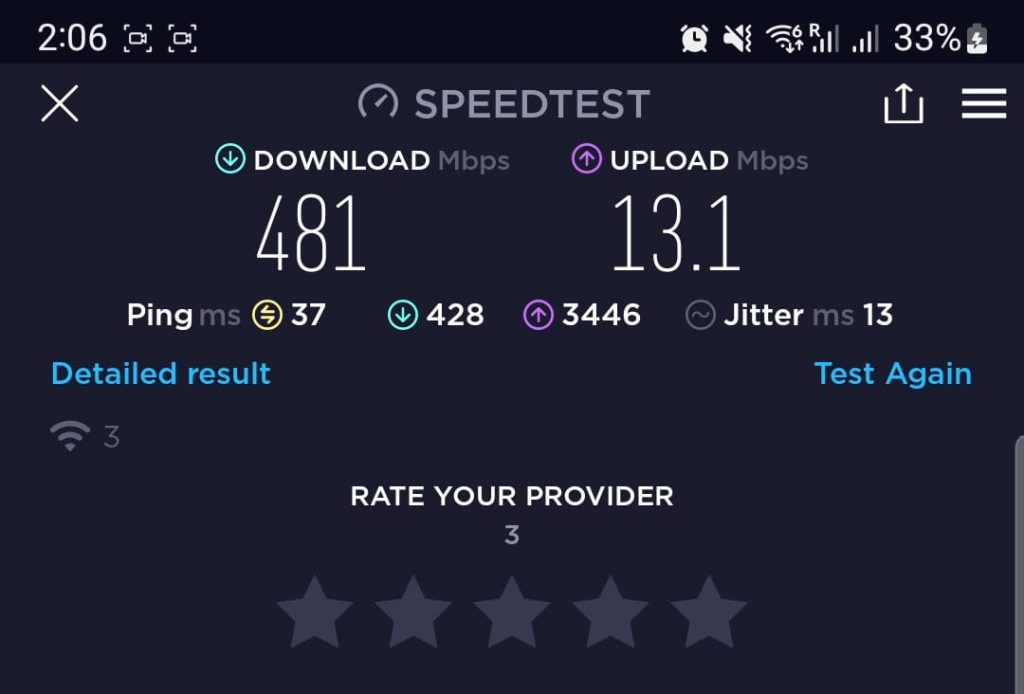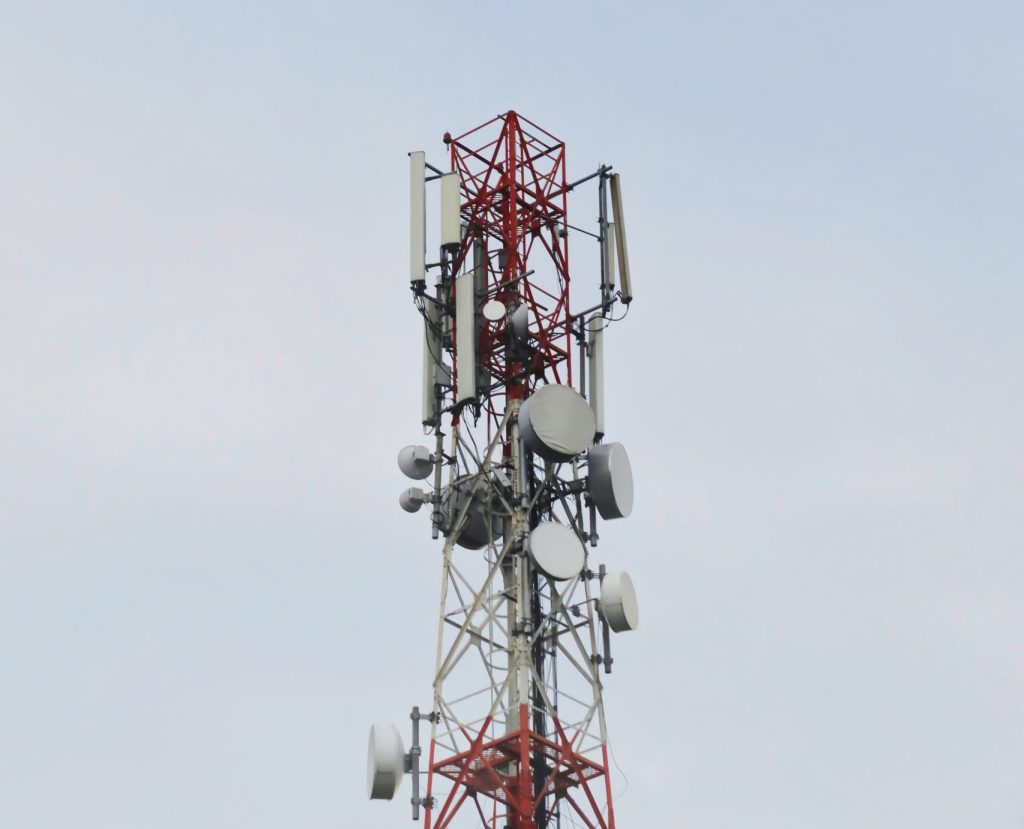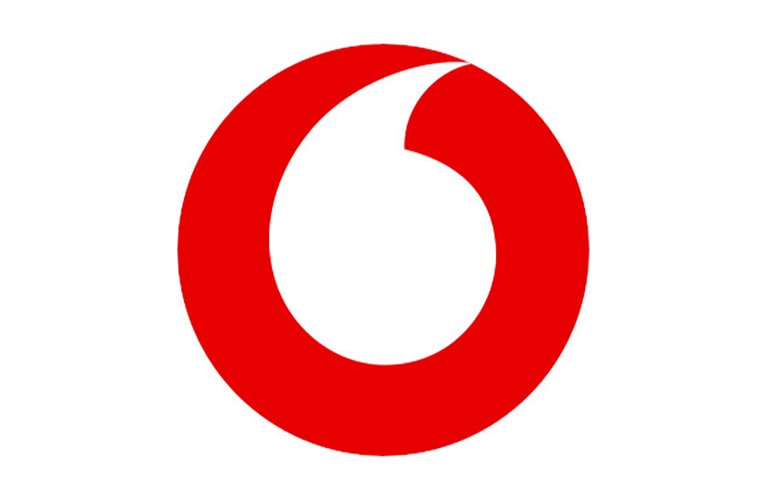Considering getting at home using 5G internet?
In this guide, we’ve reviewed three of the best 5G internet providers in Germany in 2025.
We’ve also explained how 5G home internet works, and how to choose the right mobile broadband provider for your specific needs.
Contents
Best 5G internet providers for home
Let’s begin our reviews.
In this section, we’ve reviewed three of the best 5G internet offers you can buy in Germany right now.
1. Vodafone GigaCube
The Vodafone GigaCube is the best way to get 5G home internet in Germany at the moment.
Unlike with most other mobile internet providers’ offers, you can get download speeds of up to 500 Mbit/s with this 5G router. You’re not limited to 100 Mbit/s, like you are with O2 for example.
Vodafone offers a range of data packages to choose from, including some with unlimited usage, making these tariffs a good choice if you want to get online at home full-time with 5G.
They even include the router free of charge, without forcing you to pay a router rental fee, which is a nice touch. Plus, once the router arrives, you have 30 days to test Vodafone 5G and see if its speeds are good enough for your household.
The only downside to Vodafone is their 5G internet offers are quite expensive. The monthly costs are higher than with O2 or 1&1.
Pros
Cons
Overall value rating
⭐⭐⭐⭐⭐
Price
2. O2 Homespot
O2 5G internet offers much slower download speeds than Vodafone. However, it’s also much cheaper.
You can choose between a 50 Mbit/s and a 100 Mbit/s plan when you sign up for O2 mobile internet. The faster tariff uses a combination of 4G LTE and 5G technology.
Each comes with unlimited usage included, and no upfront cost. There are no router rental fees either – you get the O2 HomeSpot router included when you sign up for a 24 month agreement, and you can also choose to avoid a contract, in return for a higher upfront fee.
But the best thing about O2 5G internet is its prices. Their monthly costs are some of the lowest on the market, and you even get a cheaper price for the first 12 months.
The only downside to O2 wireless internet is the speed it offers. You don’t get true 5G speeds of 300+ Mbit/s with the O2 HomeSpot.
Pros
Cons
Overall value rating
⭐⭐⭐⭐⭐
Price
3. 1&1 5G Internet
With 1&1, their 5G internet tariffs are based around their data SIM offers.
You can buy a 5G-enabled SIM on a 24 month contract from 1&1, with 100GB, 250GB, or unlimited monthly data.
Then, you can choose to add on a 5G router from 1&1, for a reasonable monthly fee, or bring your own Wi-Fi router if you’d prefer to avoid paying monthly.
1&1 gives you access to download speeds of up to 500 Mbit/s, which is great. And their prices are quite reasonable for the 100/250GB tariffs, although the unlimited usage offer is a bit expensive.
Overall, if you want simple 5G internet, 1&1 is a good choice. They’re best if you already have a 5G router, and just want a data SIM you can use it with, that comes with unrestricted 5G speeds.
Pros
Cons
Overall value rating
⭐⭐⭐⭐
Price
What you need to know

In this part of the article, we’ve explained what you need to know when shopping for a 5G internet provider.
How do 5G home internet tariffs work?
Most of the time, when you buy a 5G internet offer, you’ll receive a SIM card, attached to a data plan with a monthly data limit.
Separate to this, you’ll also have the option to rent or buy a 5G router from your internet provider, if you don’t already have one.
When the package arrives in the mail, you’ll insert the SIM card into the router, plug it in, and turn it on. Then, you’ll be able to connect to the Wi-Fi network the router creates.
You’ll pay a monthly fee for the internet service, as well as a monthly router rental charge, unless you decide to buy one outright.
The tariff may also have an upfront cost, depending on the provider you choose, and you’ll normally have to commit to a 24 month contract.
What download speeds will I get with 5G internet?

The download speeds you’ll get with 5G internet depend on two things:
- The 5G signal at your address.
- The maximum download speed of the plan you pay for.
Many 4G LTE and even 5G internet plans are limited to a 100 Mbit/s maximum download speed, even though 5G technology is capable of delivering much faster download speeds.
If there is no speed limit, you might be able to get download speeds of 300-500 Mbit/s using 5G internet. But even with an unrestricted 5G tariff, if your mobile signal is poor, your download speeds won’t be as fast as you might expect.
To tell how good your 5G signal is at your address, you can use the coverage checkers available on each major mobile network’s website.
Alternatively, to get a better idea of the exact speeds you’ll receive, you can perform a speed test using a 5G-enabled mobile phone on the same network you’re considering joining.
This will give you a more accurate result when compared to a coverage checker map – these online tools can sometimes be slightly inaccurate, and they might not report the exact download/upload speeds you can expect to receive.
How much can I expect to pay for 5G home internet?
Most of the time, you will have to pay about €50-€70 per month for a 5G internet plan.
The exact amount you’ll pay will depend on:
- The download speeds you’re entitled to.
- Whether you’re paying for router rental.
- How much monthly data you have.
It’s important to note, many internet providers offer a special introductory price for the first 6-12 months of the contract, during which your monthly cost will be significantly lower.
5G internet vs DSL/fibre

There are many advantages to using 5G internet instead of fixed technology, such as DSL or fibre.
- 5G is a lot more flexible. With some providers, you can take your router with you on holiday in Germany, for example.
- 5G internet can be cheaper, especially if you don’t need unlimited data.
- Setting up 5G internet is very easy. You don’t normally need an engineer to come and visit.
However, there are some downsides to 5G broadband compared to traditional technologies.
- Your latency will be higher when using 5G compared to DSL or fibre. This means that you might experience more lag when playing online games.
- 5G can be a bit more prone to signal interference. You’ll also need to ensure that you place the router in a good place in your house in order to pick up strong mobile signal.
- You won’t always get unlimited usage with a 5G internet tariff, unless you pay more for it.
5G internet vs 4G LTE internet
With some internet providers, there isn’t a big difference between their 4G LTE and 5G internet offers.
With O2 for example, they say that their mobile internet plans use LTE and 5G, and then advertise an average speed. They don’t offer separate 4G and 5G internet tariffs.
The only real difference between 4G and 5G internet is the download speeds on offer. You can expect to get up to 50 Mbit/s with 4G LTE, or 100-500 Mbit/s with 5G, depending on any restrictions put in place by your provider.
Other than this, the two types of technologies are the same, from your standpoint as the consumer. They are set up the same way, and offer a similar latency in most cases.
How to save money on 5G internet

If you like the idea of using 5G to get online at home, but find that the tariffs are a bit expensive, here are some ways to save money when shopping.
- Buy a 5G router upfront, rather than renting one from your provider. Although this will be more expensive initially, you should be able to save money over the long term by avoiding Wi-Fi router rental fees.
- Ensure to seek out the cheapest deal at any given moment. Typically, O2 offers the best prices when it comes to 5G internet.
- Get a tariff with a data limit. This will allow you to save a significant amount of money each month. However, this might not be a good idea if you’ll be using 5G as your main way of getting online at home full time.
How much monthly data do I need?
Nearly all fixed-line broadband tariffs in Germany currently come with unlimited data.
The problem is, 5G internet plans often have a usage limit, unless you pay a lot more for unlimited data.
If you’ll be using 5G internet as your main way of getting online at home, you will likely want unlimited data. With the number of files we download and videos we watch these days, you will likely find that you use 400-500GB of data each month or more, especially as a family.
You’ll only be able to get away with a 100-200GB monthly data limit if only one or two people live at home, and you don’t use the internet much. And when you do get online, you only browse the web or watch social media, with the occasional YouTube video, rather than downloading large files on a regular basis.
Which is the best 5G internet provider in Germany?

At the moment, we think that Vodafone offers the best 5G internet plan for home use on the market at the moment.
They offer unlimited data, as well as download speeds of up to 500 Mbit/s – much higher than most other providers.
The only downside to Vodafone is their monthly costs are quite high, compared to other companies like O2 or 1&1.
There are also some other internet providers we haven’t mentioned in this guide that also sell 5G internet tariffs. We haven’t included these companies because we wouldn’t recommend using their 5G internet service as your main way of getting online at home.
For example, Telekom has a product they call the Speedbox, which works in a similar way to the Vodafone GigaCube. However, it’s quite expensive compared to most other mobile broadband providers.
Conclusion
This is the end of our 5G internet buyer’s guide.
Remember, if you’re using 5G as your main way of getting online at home, It’s worth paying more for unlimited data. Otherwise, you might find yourself hitting your usage limit quite quickly.
If you have any questions about choosing a 5G internet tariff, leave a comment below, and we’ll respond as soon as we can.

I’m Roger, and I’m the founder of Broadband 4 Europe.
I grew up in Switzerland but live in Germany now, and also lived in South Tirol for a while in the past.
I have a background in IT and have performed extensive research into the broadband markets of most major European countries. Learning about fixed-line broadband markets is my nerdy hobby, but I’m also excited by the possibilities that 5G (and eventually 6G) broadband will provide us in the future.
When I’m not researching broadband companies and their networks, you’ll find me playing volleyball or the piano.








